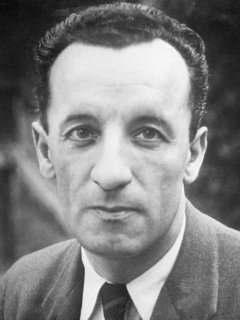
Publication details
Publisher: Springer
Place: Berlin
Year: 2017
Pages: 609-621
Series: Phenomenology and the cognitive sciences
Full citation:
, "Merleau-Ponty on human development and the retrospective realization of potential", Phenomenology and the cognitive sciences 16 (4), 2017, pp. 609-621.


Merleau-Ponty on human development and the retrospective realization of potential
pp. 609-621
in: David Morris (ed), Rethinking Development, Phenomenology and the cognitive sciences 16 (4), 2017.Abstract
In this essay, I propose that human development is the emergence of something significantly new out of a past situation that does not hold that novel achievement as a determinate potential except retrospectively. Development, in other words, might best be understood as a "realization" in the sense of a making-real of some new form of being that had no prior place in reality, that was not programmed in advance, but that once realized can have its roots traced back to determinate conditions and potentials in its own past. This amounts to a rethinking of the nature of developmental potential as retrospectively determined. But it also involves a reconception of the locus of such potential: I argue that developmental potential must be understood as located in the human-organism-in-its-situation, rather than simply in the human organism. I take my bearings from phenomenologist Maurice Merleau-Ponty, and I make my case by elucidating three different forms of human development described by Merleau-Ponty: intellectual realizations of insight; the realization of a new perceptual-motor skill; and a child's realization of a new lived way of making sense of the interpersonal world.
Cited authors
Publication details
Publisher: Springer
Place: Berlin
Year: 2017
Pages: 609-621
Series: Phenomenology and the cognitive sciences
Full citation:
, "Merleau-Ponty on human development and the retrospective realization of potential", Phenomenology and the cognitive sciences 16 (4), 2017, pp. 609-621.

